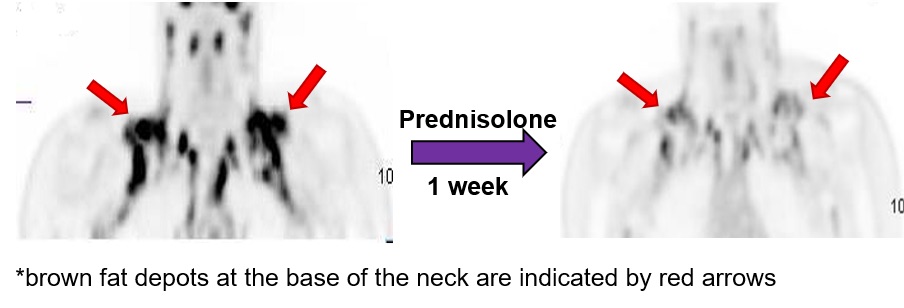Researchers from The University of Queensland have found that steroids such as prednisolone that are used for inflammation and immune diseases are more likely to cause people to store fat instead of burning it.
Endocrinologist and UQ Senior Lecturer Dr Moe Thuzar and her colleagues found regular steroid use suppressed the function of brown fat – the energy-burning fat in humans.
Humans have two types of fat: white fat, which stores energy; and brown fat, which burns energy by acting like a heat generator to keep the body warm.
“When the function of brown adipose tissue, known as brown fat, was suppressed by steroids like prednisolone, energy which would have otherwise been dissipated as heat is instead stored as white fat,” Dr Thuzar explained.
“Our study found that a standard dose of prednisolone, for one week, reduced brown fat function by 50 per cent in healthy volunteers.

“Over the long term, this could mean a gain of about three kilograms of white fat over a year.”
Dr Thuzar said the study findings suggested weight gain, a common side effect of the drug, was not just caused by increased appetite, but also due to suppressed function of energy-burning brown fat.
“Now that we know that suppressing brown fat function causes weight gain, we can look at ways of activating brown fat to counteract this adverse effect of steroids,” she said.
“Our findings also highlight the importance of brown fat in maintaining energy balance and body weight in daily life.”
The research has been published online in the Diabetes, Obesity and Metabolism journal.
Media: Moe Thuzar, +61 7 3343 7944, +61 7 3176 2111, m.thuzar@uq.edu.au, Sam Benger +61 7 3365 5118, s.benger@uq.edu.au



